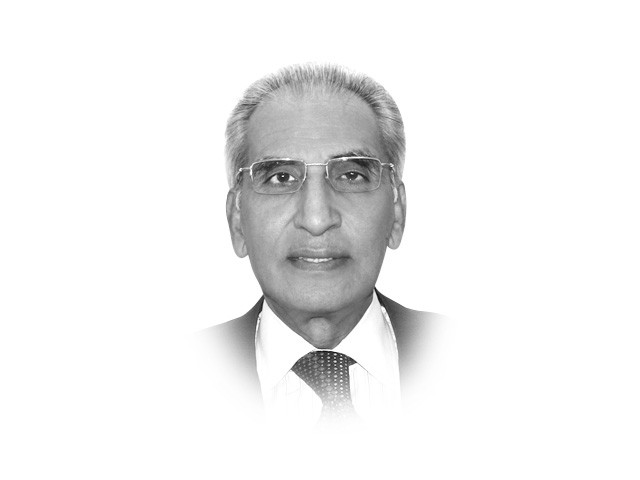Indo-US ties and Pakistan
The closeness of ties demonstrated between India and US cannot be grudged by Pakistan.

Indo-US ties and Pakistan
She was, however, not too far off the mark, as she knows how much time and effort have been invested in promoting US ties with India. In fact, the Obama Administration has assiduously built on foundations laid by her husband’s administration and later strengthened by the Bush administration. Consequently, the Obama Administration enjoys bipartisan support in Washington, enabling the administration to justifiably claim that they have acquired a strategic character. This was evident from the moment in 2005, when president George W Bush offered nuclear technology and know-how to India, even though neither US laws nor the NPT permitted this transaction.
Pakistanis may fret and agitate, viewing it as discriminatory, but great powers are never inhibited by such considerations, with the US being the best practitioner of what Henry Kissinger popularised as “realpolitik”. Given India’s democratic and secular credentials, impressive growth rates and growing influence of its nationals abroad, it is inevitable that she should be courted by major powers, including the US.
More importantly, with China seen increasingly as a potential rival, India fits in well as a suitable counterweight in what American scholars characterise as a China “containment” policy. This explains the inelegant haste with which senior American officials, including Secretary Clinton and Secretary of Defence Leon Panetta, have been encouraging India to expand its interest in the Pacific region, though acknowledging that since India was not a Pacific power, the US would have to assist her in playing this role. During his recent visit to India, Secretary Panetta gave fresh evidence of this when he declared that “defence cooperation with India is a linchpin in US strategy”, while highlighting its significance in “providing security for this region and the world” and specifically mentioning “help for Afghan security forces”.
While we cannot grudge the mutually shared ambitions of the two countries, what appears unnecessarily gratuitous is the use of Indian soil to berate Pakistan. It has become the fashion of today, with Panetta’s latest pronouncements in India — and later, in Kabul — when he warned that “the US was reaching the limits of our [its] patience”. This was needlessly offensive and counterproductive, especially at a time when Pakistan-US relations are already confronted with grave challenges. But Panetta is not one to be too concerned with the ‘sensitivities’ of others. His utterances only add to Pakistan’s worries and further muddy the already choppy waters of Pakistan-US relations.
Neither side has shown any particular skill or intelligence in rebuilding their bilateral ties, which are important to the US but far more critical to Pakistan. Senator John McCain was wise to advise against “further antagonising [of] Pakistan unnecessarily”. But there are few takers for such wise counsel and there is certainly even less appreciation for Pakistan’s primary concern with the contours of the endgame in Afghanistan. Working closely with the US and Nato allies would have appeared to be a better option than grand standing on hurt pride and emotion — charged references to honour and dignity. This has boxed us in a no-win situation, wherein we have angered not only the US, but also Nato countries that are major trading partners, as well as traditional allies, such as Turkey.
Demands for apology and cessation of drone attacks were proper and legitimate, as they reflected national sentiments. However, becoming fixated on these demands has intensified anti-Pakistan sentiments in many capitals. In the process, the Nato supply routes that gave us an important advantage are losing their relevance with increased reliance on the Northern Distribution Network. Now, we could be missing the bus on the Afghan reconciliation process as well.
Published in The Express Tribune, June 20th, 2012.
















COMMENTS
Comments are moderated and generally will be posted if they are on-topic and not abusive.
For more information, please see our Comments FAQ